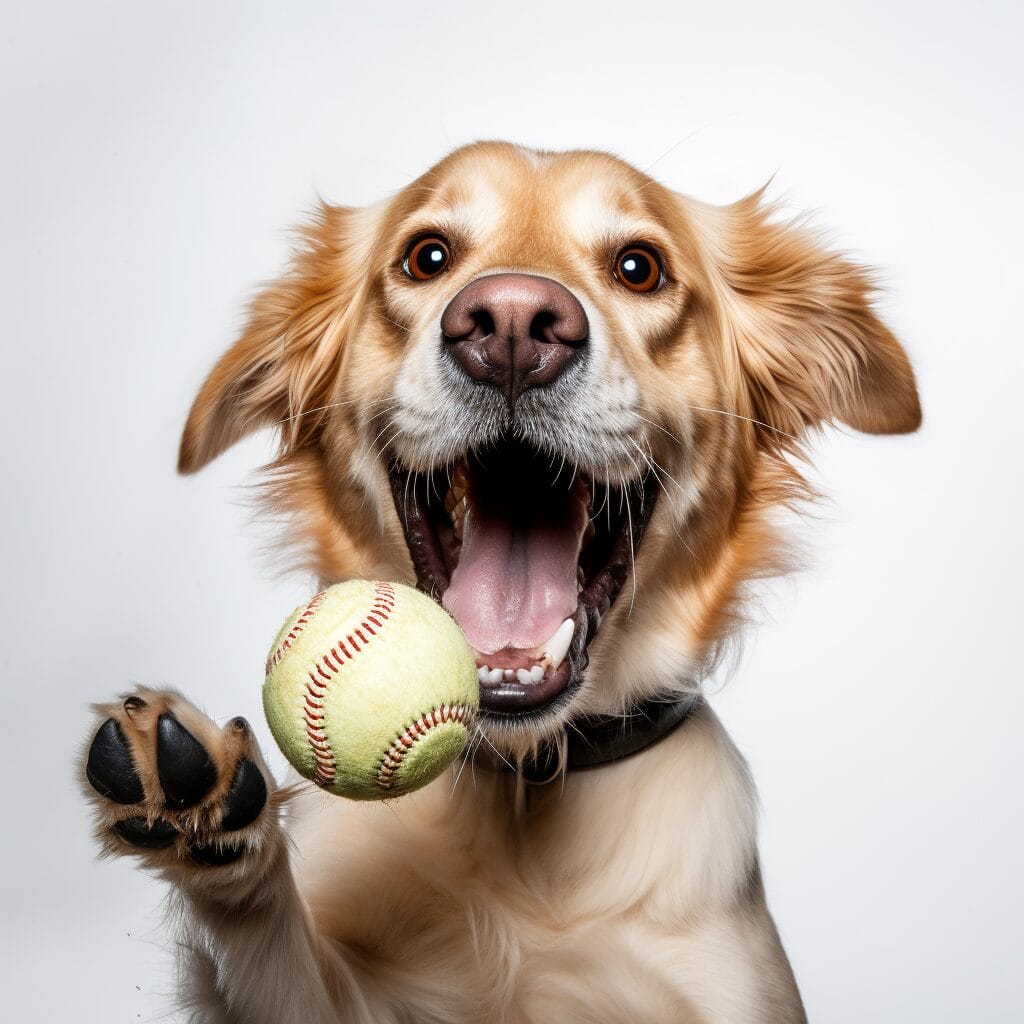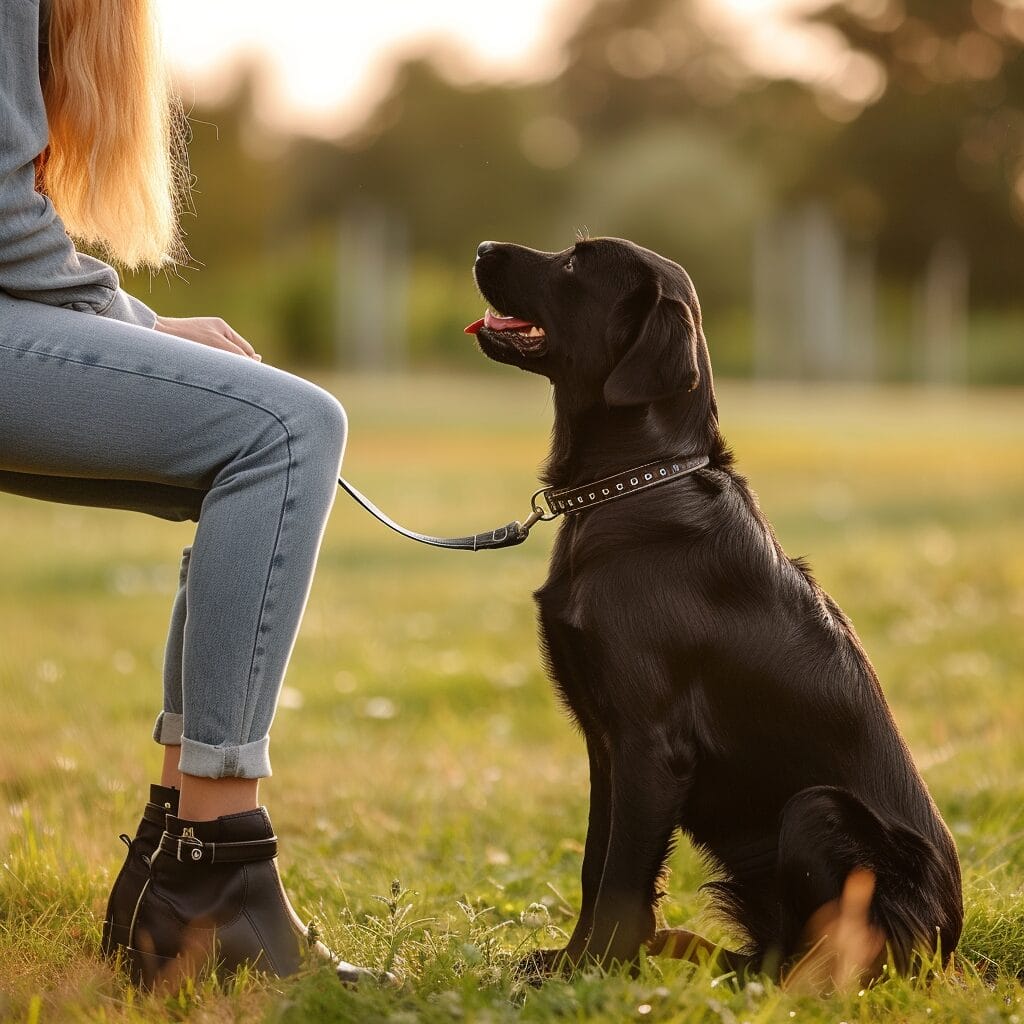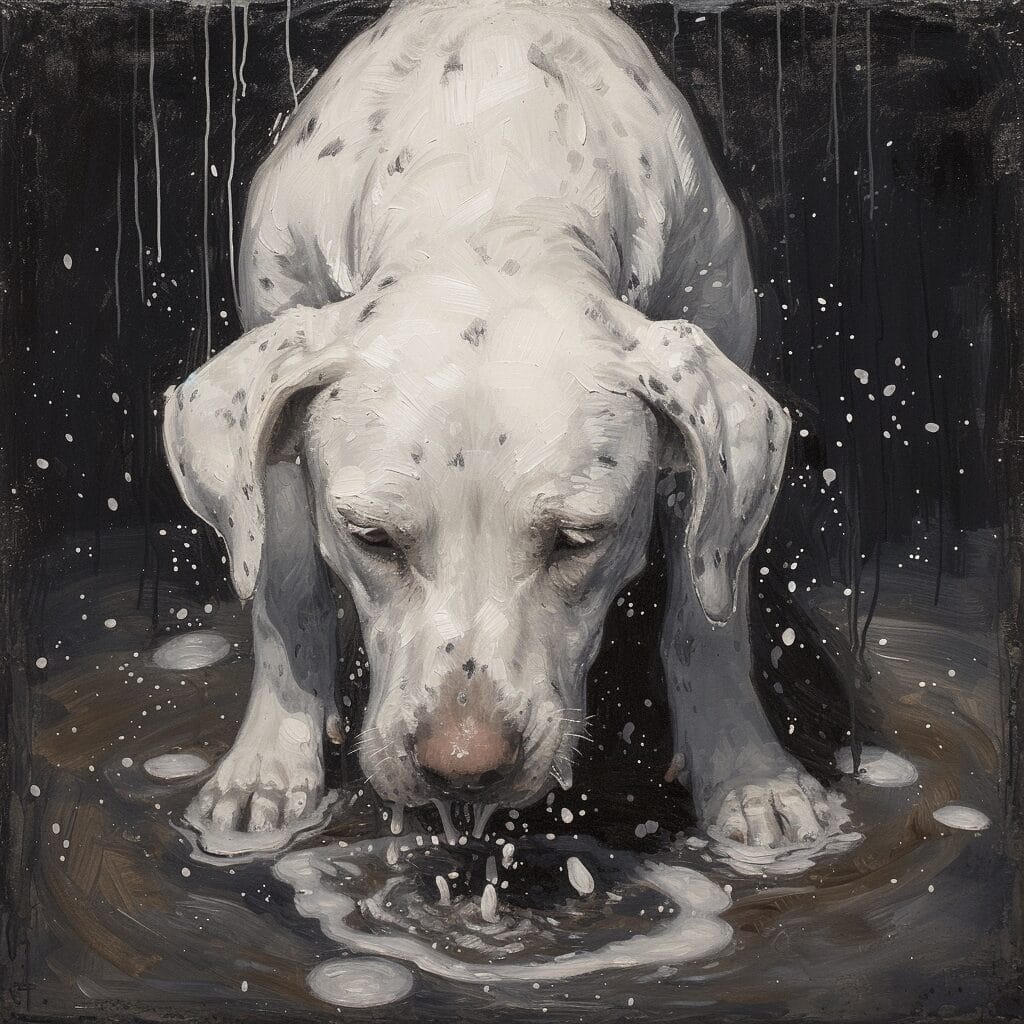Did you know that over 100,000 dogs suffer baseball-related injuries each year in the United States alone? While playing fetch with your furry friend seems harmless, the safety of using a baseball or tennis balls can be questionable. In this post, we’ll dive into whether it’s safe for dogs to play with baseballs and explore alternative toys, chews, that are both fun and safe for your canine companion.
Allowing your dog to play with a baseball, chew toy, sticks, and chews comes with risks. We’ll uncover these dangers such as trouble with dog gnaws and provide insights into how to mitigate them. We’ll introduce you to various interactive toys specifically designed for dogs, including tennis balls and sticks, ensuring their enjoyment without compromising their well-being.
Is It Safe for a Dog to Play with a Baseball?
Understanding Why Dogs Chew on Objects
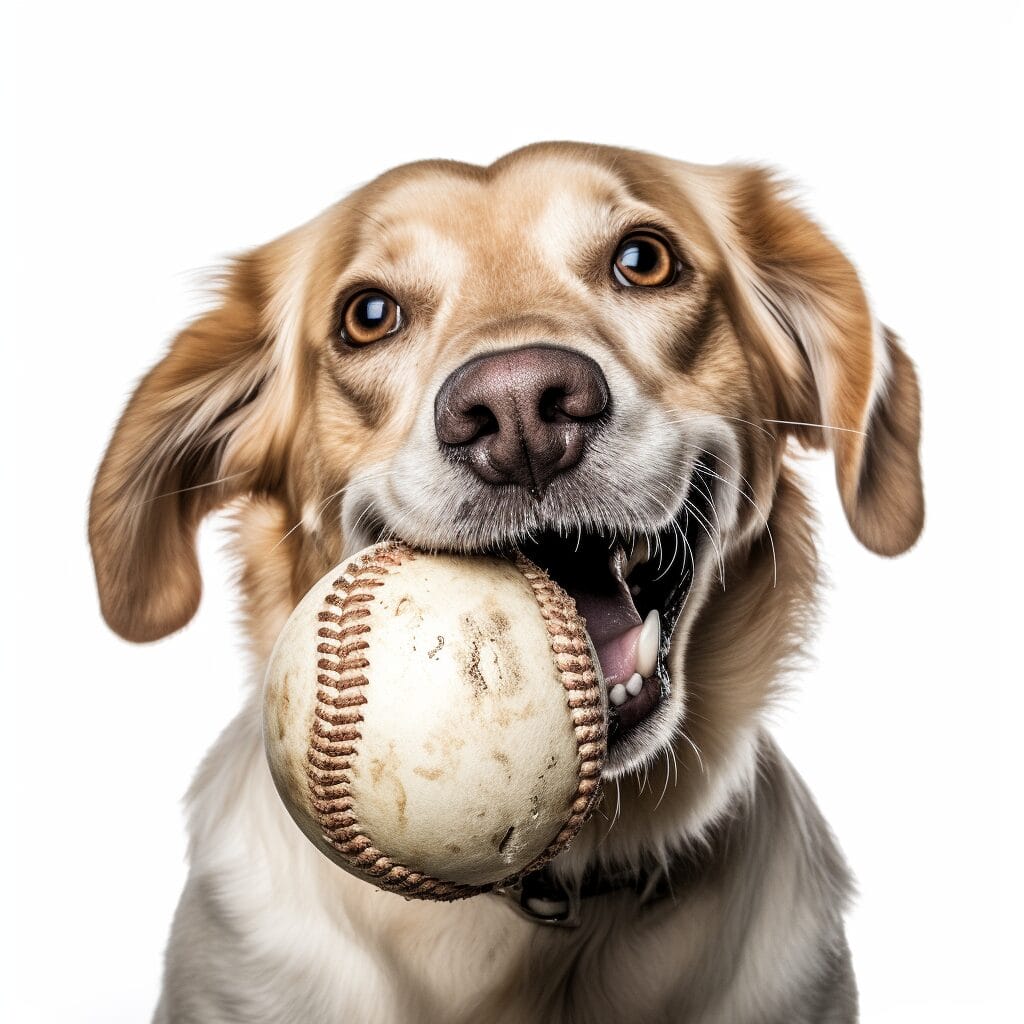
Reasons Dogs Chew on Objects
Dogs have a natural inclination to chew, which serves various purposes. Chewing helps teething puppies and dog gnaws relieve boredom and anxiety. When dogs are left alone for extended periods, they may resort to chewing as a way of coping with separation anxiety. The act of chewing provides mental stimulation and can be soothing for dogs.
Chewing is deeply ingrained in a dog’s nature as it allows them to explore their environment and alleviate stress or frustration. Puppies, especially during the teething phase, tend to chew more frequently as they seek relief from the discomfort caused by emerging teeth. Understanding these reasons can help pet owners address their dog’s chewing behavior effectively.
Potential Risks of Dogs Playing with Baseballs
While playing with baseballs and chew toys might seem harmless at first glance, there are potential risks associated with this activity that pet owners should be aware of.
- Ingestion Hazard: The small size and shape of baseballs pose an ingestion risk for dogs. If a dog chews on or tears apart a baseball, they could accidentally swallow pieces of it, leading to choking or intestinal blockages.
- Toxic Materials: Some baseballs may contain toxic materials such as lead or other harmful substances used in manufacturing processes. Ingesting these materials can result in serious health issues for dogs.
- Dental Damage: Chewing on hard objects like baseballs can cause dental damage in dogs. The impact and pressure exerted while gnawing on hard surfaces may lead to fractures or wear down their teeth over time.
Pet owners should consider providing safer alternatives such as durable chew toys specifically designed for dogs instead of allowing them to play with baseballs.
Potential Hazards of Dogs Playing with Baseballs
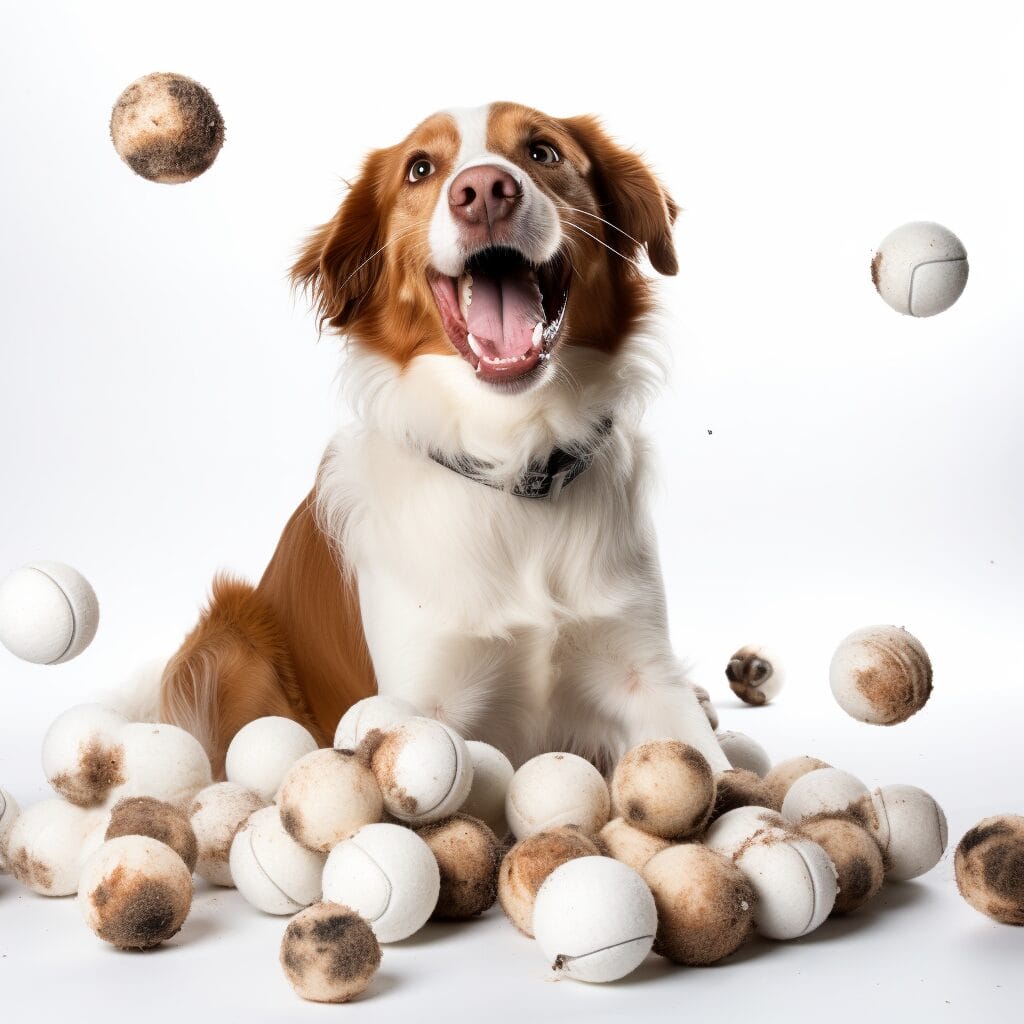
Choking and Swallowing Risks
Dogs really enjoy playing, especially with balls. However, there are some dangers to consider. Many dogs like to chew on the leather cover of a baseball or even rip the whole ball apart. This can be risky as it may lead to choking or swallowing small parts of the baseball.
Playing with a baseball can lead to serious health issues for your furry friend. The hard surface of a baseball can easily break into smaller pieces, which may be swallowed by your dog. These small parts can cause blockages in their digestive system or pose a choking hazard.
Dental Damage from Hard Baseballs
Another concern is the possibility of dental damage caused by playing with hard objects like baseballs. When dogs aggressively chew on something as solid as a baseball, they risk fracturing their teeth or damaging their gums.
The impact from biting down on the hard surface of a baseball can potentially lead to tooth fractures, which may require veterinary intervention and treatment. Constant chewing on hard objects might also contribute to wearing down your dog’s teeth over time.
Ingestion of Toxic Materials
Apart from physical harm, there is also a potential for ingestion of toxic materials present in baseballs. The leather covering and stitching often contain chemicals that could be harmful if ingested by your pet.
If a dog chews through the outer layer and swallows any part containing these toxic substances, it could result in poisoning and subsequent health complications. It’s essential to consider this risk when allowing your dog to play with items like baseballs that have components made from synthetic or chemically treated materials.
Risks of Dogs Chewing on Baseball Leather
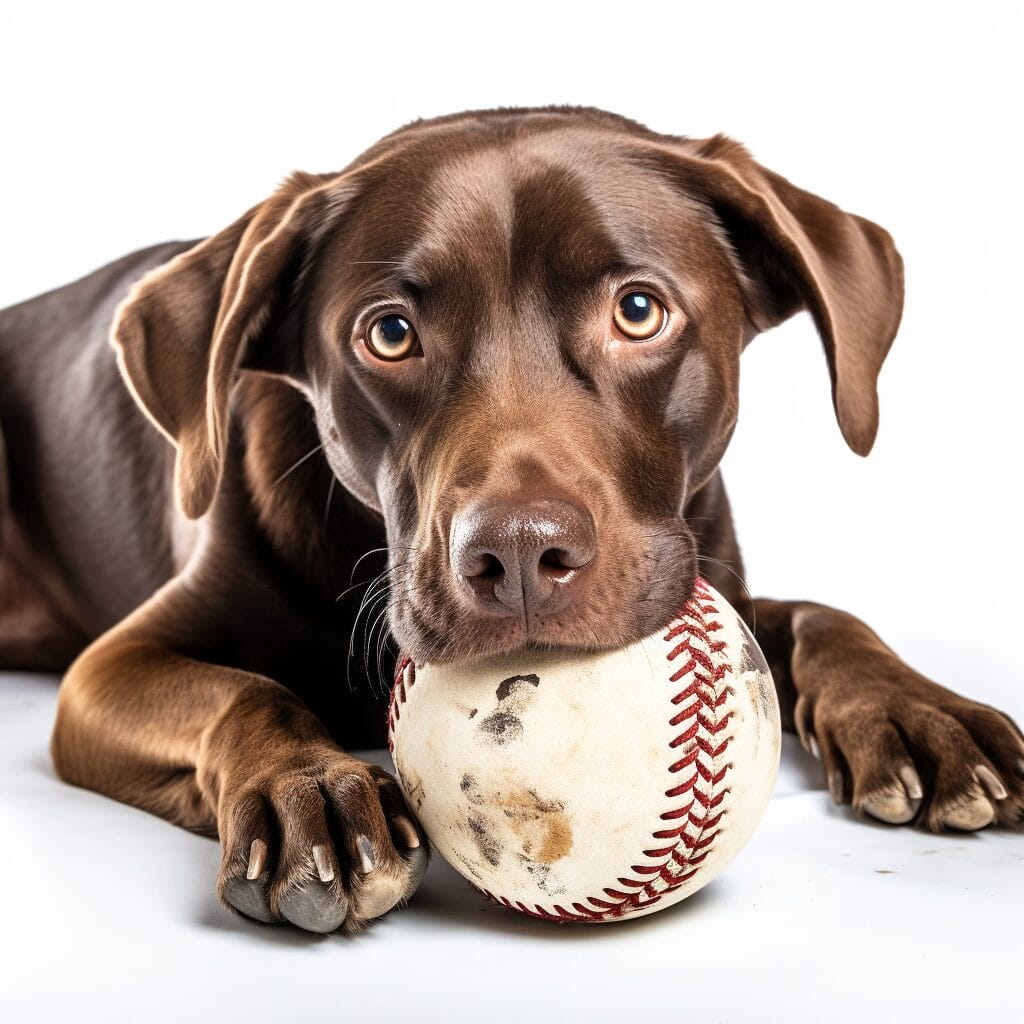
Digestive Blockages
Chewing on a baseball can pose significant risks to a dog’s health. The leather used in baseballs is not easily digestible and can lead to blockages in the dog’s digestive system. If a dog ingests pieces of leather from a baseball, it could cause an obstruction in its stomach or intestines. This can result in severe discomfort for the dog and may require surgical intervention to remove the blockage.
Dogs are naturally curious and may chew on objects they find interesting, including baseballs. If they swallow fragments of the leather, it could lead to serious health issues such as vomiting, diarrhea, loss of appetite, abdominal pain, or even more severe complications if left untreated. Therefore, allowing dogs to play with baseballs unsupervised should be avoided to prevent this potential hazard.
Harmful Chemical Treatments
The chemical treatments applied to leather during the manufacturing process also pose a risk if ingested by dogs. These chemicals are not intended for consumption, and when chewed upon by dogs, they can leach into their systems and cause toxicity. Some common symptoms of chemical ingestion include drooling, vomiting, diarrhea, lethargy, weakness, and even neurological issues.
It’s crucial for pet owners to recognize that while natural instincts drive dogs to explore objects through chewing,** certain materials like chemically treated leather** present dangers that must be mitigated proactively. Opting for safer alternatives such as rubber or fabric-based toys instead of traditional baseballs can significantly reduce the risk posed by harmful chemical exposure from chewing activities.
Injury Risk from Sharp Edges
Apart from digestive concerns and chemical hazards associated with chewing on baseballs,** there is also an increased risk of injury due to sharp edges formed during the process**. As dogs gnaw at the tough exterior surface of a baseball’s leather cover,** it tends to fray unevenly**, leading to jagged edges that can lacerate their mouths or throats.
The potential injuries caused by these sharp edges range from cuts inside the mouth and gums to more severe damage further down their throat if swallowed unintentionally. Thus ensuring that your furry friend has access only to safe toys without any potential harm should always remain top priority.
Signs of Bowel Obstructions in Dogs

Symptoms of Bowel Obstruction
Bowel obstruction in dogs can lead to serious health issues. Vomiting, diarrhea, or constipation are common signs that your dog may be suffering from a bowel obstruction. If you notice your furry friend experiencing any of these symptoms, it’s crucial to seek veterinary care immediately.
lethargy and loss of appetite could indicate an underlying issue such as a potential intestinal blockage. If your dog seems unusually tired and disinterested in food, this could be a cause for concern. Keep an eye out for these changes in behavior as they might signal the presence of a bowel obstruction.
Physical Indications
Another telltale sign of bowel obstruction is abdominal pain and bloating. If you notice your dog displaying discomfort when their abdomen is touched or if their stomach appears swollen or distended, it’s essential to consult with a veterinarian promptly.
Immediate Actions for Swallowed Baseball Materials
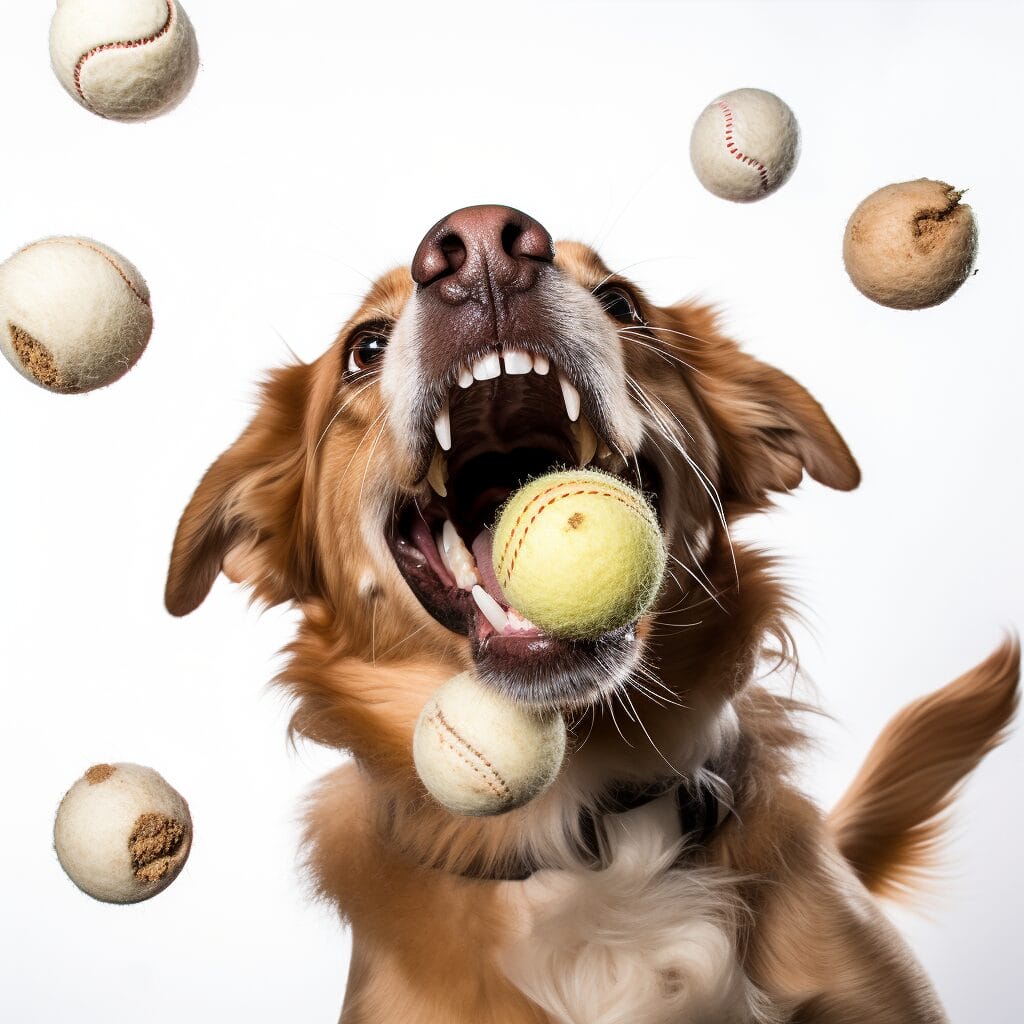
Immediate Actions
If you suspect that your dog has swallowed baseball materials, such as the ball or its components, it’s crucial to contact a veterinarian immediately. Even if there are no immediate signs of distress, seeking professional guidance is essential. Monitor your dog for any signs of distress or discomfort, including vomiting, diarrhea, loss of appetite, lethargy, or abdominal pain. Refrain from attempting to induce vomiting without professional advice.
It’s important to understand the potential risks associated with dogs playing with baseballs. While playing fetch can be an enjoyable activity for many dogs and their owners, there are certain hazards that come with it. Dogs may accidentally swallow parts of the baseball during playtime which can lead to serious health issues such as bowel obstructions.
Playing fetch with a baseball can pose various dangers to your furry friend’s well-being. The risk of swallowing small parts of the ball during play increases significantly when compared to other toys like rubber balls or frisbees. These smaller parts can cause choking hazards and even lead to intestinal blockages if ingested by your dog.
Potential Risks
Swallowing these foreign objects could result in severe consequences for your pet’s health and well-being. Ingested pieces may become lodged in the digestive tract causing painful obstructions that require surgical intervention and extensive medical care. Moreover, sharp edges on broken pieces could potentially damage the delicate tissues within your dog’s gastrointestinal system leading to internal injuries.
Given these potential risks associated with allowing dogs to play with baseballs unsupervised, it is imperative for pet owners to exercise caution when engaging in this activity.
Safe Alternatives to Baseballs for Dog Play
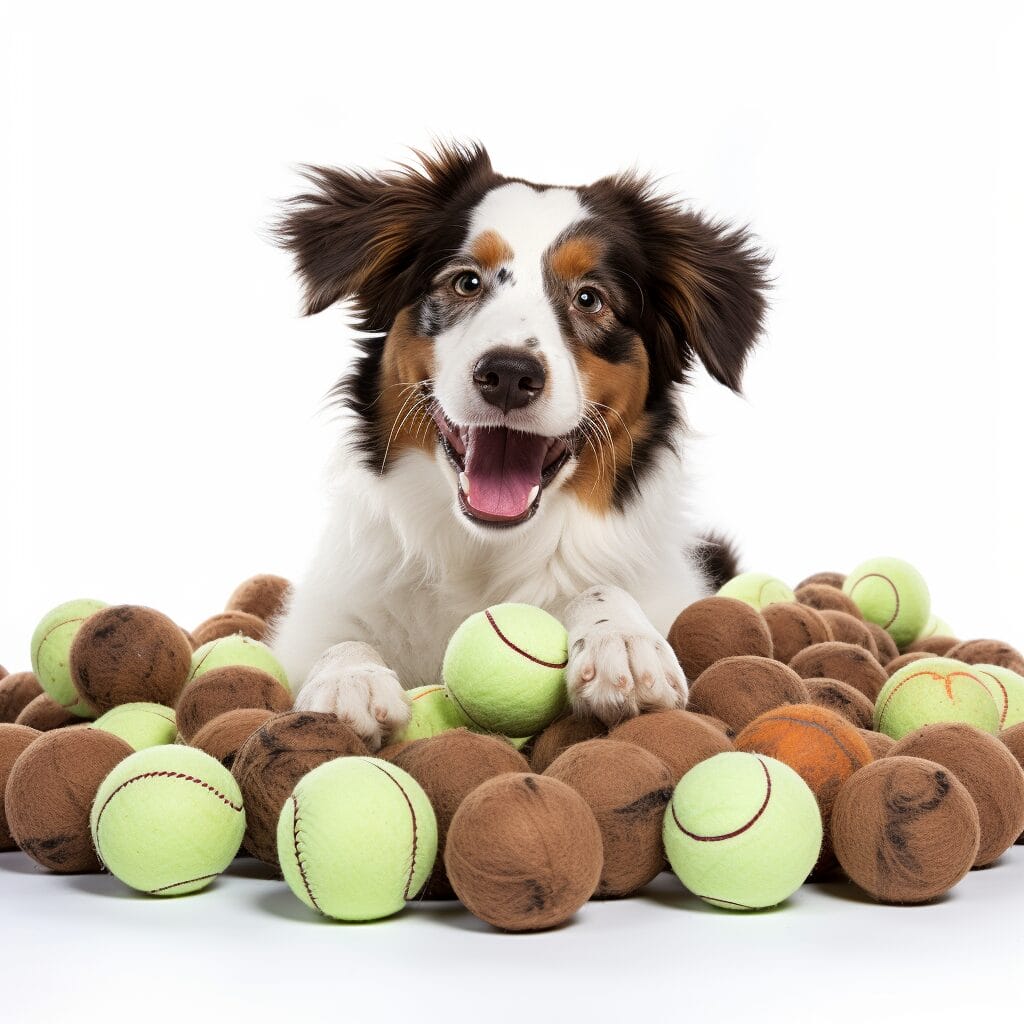
Rubber Balls
Rubber balls designed specifically for dogs’ safety are a great alternative to tennis balls. These balls are durable and can withstand the strong jaws of most dogs, reducing the risk of choking hazards. They often come in bright colors, making them easy to spot during outdoor play. Dogs enjoy chasing and fetching these rubber balls just as much as they do with regular baseballs.
These rubber balls also provide a safe option for interactive play between owners and their pets. Their bounce makes them ideal for games like fetch or catch, promoting healthy exercise while minimizing potential harm from sharp edges or hard surfaces.
Soft Fabric Toys
Soft fabric toys suitable for chewing and fetching serve as another excellent substitute for baseballs. Unlike traditional baseballs that can cause dental damage if chewed on excessively, soft fabric toys are gentle on dogs’ teeth and gums.
Not only do these toys satisfy a dog’s natural urge to chew, but they also offer comfort during quiet time or relaxation moments at home. Many soft fabric toys come in various shapes and sizes, catering to different breeds and preferences among dogs.
Interactive Puzzle Toys
Interactive puzzle toys provide mental stimulation while keeping your furry friend entertained without posing any risks associated with playing with tennis ball substitutes such as traditional baseballs. These innovative toys challenge dogs by engaging their problem-solving skills through hidden treats or compartments that require manipulation to access rewards.
Toxicity Concerns with Baseball Contents
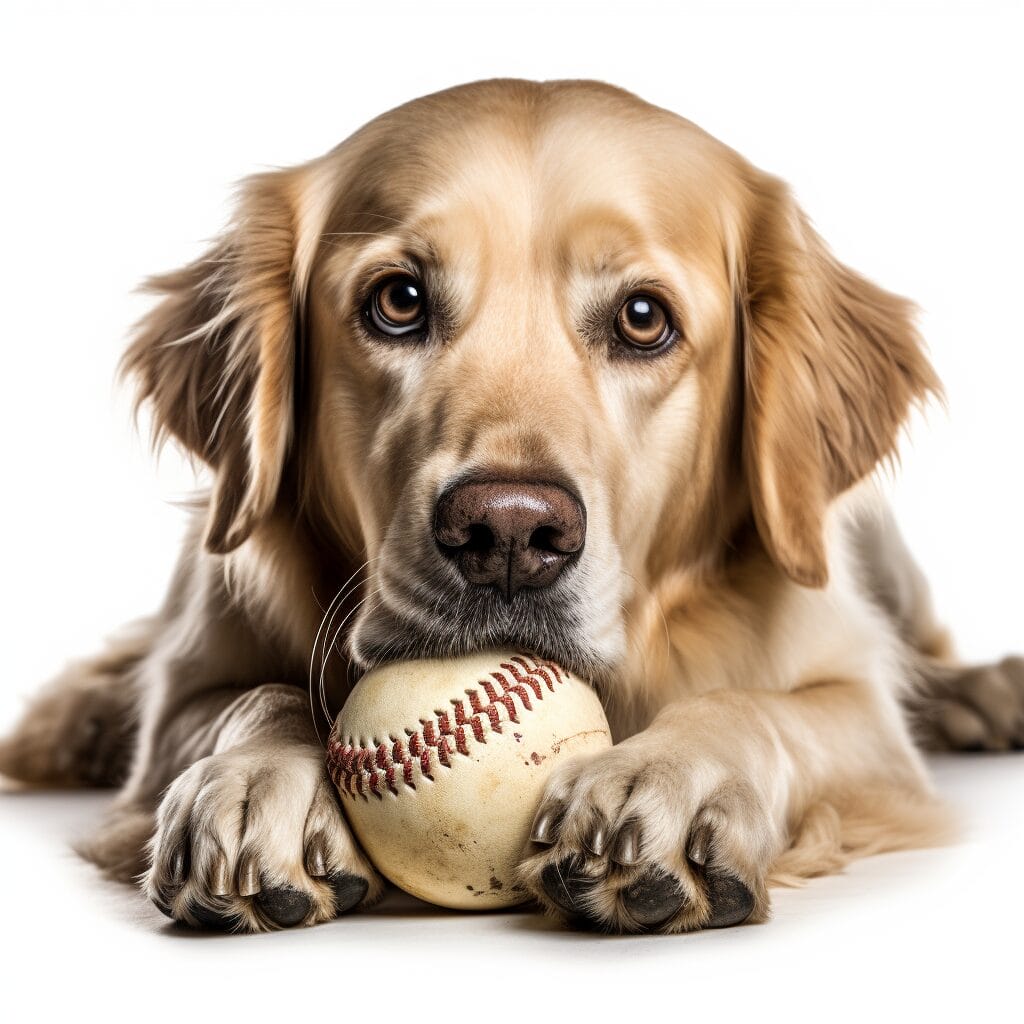
Leather and Dye
Leather baseballs may contain chemicals that are toxic if ingested by dogs. When a dog chews on a baseball, there’s a risk of them swallowing pieces of the leather or dye, which can be harmful to their health. These substances can cause gastrointestinal distress, such as vomiting and diarrhea.
Dogs may also experience more severe symptoms like lethargy and loss of appetite if they ingest these toxic materials from baseballs. In some cases, ingestion of these substances can lead to liver failure in dogs.
Rubber or Synthetic Materials
In addition to the leather and dye, the rubber or synthetic materials used in some baseballs can also pose a danger to dogs when chewed on or swallowed. If ingested, these materials can cause blockages in the digestive system, leading to serious health issues for the dog.
It’s essential for pet owners to monitor their dogs closely when playing with baseballs containing rubber or synthetic components. If any signs of discomfort or distress are observed after playtime with such balls, immediate veterinary attention is necessary.
Paint or Ink
The paint or ink used on baseballs may contain toxic substances that could be harmful if consumed by dogs. When chewing on a ball with paint or ink coatings, there’s a risk that small particles could come off and be ingested by the dog.
Ingestion of these toxic substances from paint or ink may result in adverse reactions such as drooling, pawing at the mouth, and stomach upset in dogs. To prevent potential poisoning from these sources while still allowing your dog to enjoy playtime activities safely, it’s important for pet owners to consider alternative toys that do not pose similar risks.
Preventing Your Dog from Chewing Harmful Objects
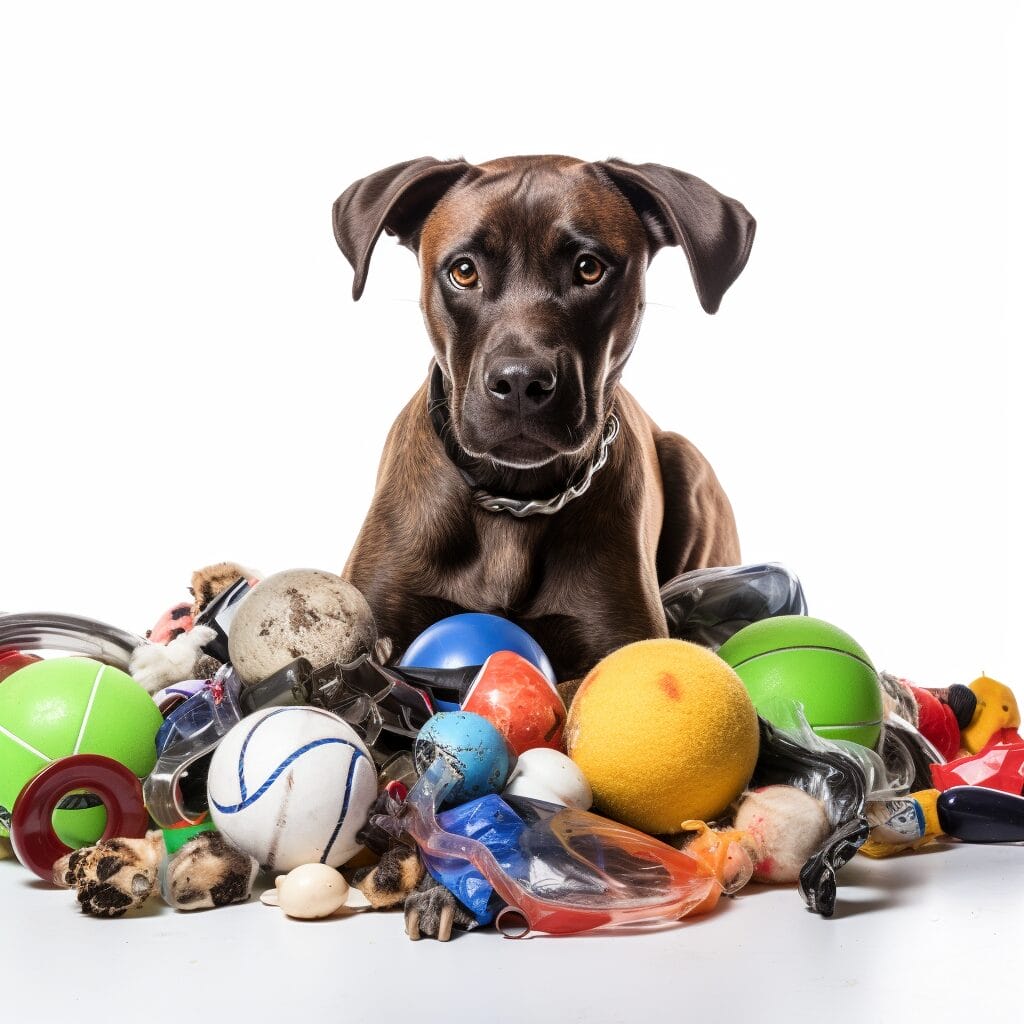
Supervise Playtime
Always supervise your furry friend during playtime. This allows you to intervene if they start gnawing on something unsafe. Keep a close eye on them, especially when they have access to items like baseballs or other non-toy objects.
It’s important to remember that even seemingly harmless items can pose a risk if ingested by your pup. By supervising their playtime, you can prevent potential accidents and keep them safe from harm.
Appropriate Chew Toys
Providing chew toys specifically designed for dogs is crucial in preventing them from chewing on hazardous objects. Look for toys made of durable materials that won’t break into small pieces easily, reducing the risk of choking or intestinal blockages.
Rotate these toys regularly to keep your dog engaged and satisfied with appropriate chewing options. Introducing new textures and shapes can also help fulfill their natural urge to chew without resorting to non-toy items like baseballs.
Training and Positive Reinforcement
Training your dog not to chew on non-toy items requires patience and consistency. Use positive reinforcement techniques such as rewarding good behavior with treats or praise when they choose their designated chew toy over inappropriate objects.
Redirect their attention by offering the approved toy whenever they show interest in something they shouldn’t be chewing on. Over time, this training can help deter them from gnawing on harmful items while promoting healthy chewing habits.
Conclusion
So, is it safe for your furry friend to play with a baseball? The answer is a resounding no. From potential hazards and risks to toxicity concerns, it’s clear that baseballs pose significant dangers to your dog’s health. There are plenty of safe alternatives for your pup to enjoy, such as durable chew toys specifically designed for dogs. By being proactive and providing suitable playthings, you can prevent accidents and keep your canine companion out of harm’s way.
Now that you’re aware of the risks associated with dogs playing with baseballs, take the necessary steps to ensure your pet’s safety. Remove any baseballs from their reach and replace them with safer options. Your furry friend will thank you for it, and you’ll have peace of mind knowing that they’re playing without any potential dangers lurking around. Keep your pup safe and happy by making informed choices about their playtime activities.
Frequently Asked Questions
Is it safe for my dog to play with a baseball?
It’s generally not safe for dogs to play with baseballs due to the potential hazards and risks associated with chewing on them. The leather, threads, or even toxic contents of the baseball can pose serious health risks to your furry friend.
What are the signs of bowel obstructions in dogs from swallowing baseball materials?
Signs may include vomiting, diarrhea, abdominal pain, lethargy, and loss of appetite. If you suspect your dog has swallowed any part of a baseball and shows these symptoms, seek immediate veterinary care.
Are there safe alternatives to using baseballs for dog play?
Absolutely! Opt for durable rubber balls or specially designed dog toys that are free from hazardous materials like leather or toxic components. These alternatives provide a safer option for interactive playtime with your pup.
How can I prevent my dog from chewing harmful objects like baseballs?
Supervise your dog during playtime and training sessions. Provide ample chew toys specifically made for dogs as an alternative to inappropriate items like baseballs. Consistent redirection and positive reinforcement can help deter unwanted chewing behaviors.
What toxicity concerns should I be aware of regarding the contents of a baseball?
The core of some traditional baseballs contains harmful chemicals that could endanger your pet if ingested. These substances may lead to poisoning or severe health complications in dogs. It’s vital to keep such items out of reach at all times.

